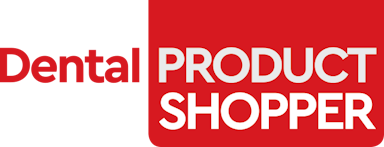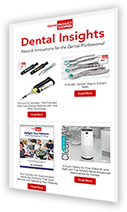AN INTERVIEW WITH KIMBERLY CAMERON JONES, RDH

KIMBERLY CAMERON JONES, RDH
A 2009 graduate of the University of Tennessee Health Science Center, where she earned her BS in dental hygiene, Kimberly Cameron Jones is the Vice President of Hygiene Operations at Aspen Dental. Throughout her 15 years in the dental industry, she’s worked in both clinical hygiene and hygiene management. She is passionate about supporting the growth and continued development of Aspen Dental hygienists.
For Kimberly Cameron Jones, the journey to Aspen Dental began with a simple change of location. In 2010, shortly after earning her BS in dental hygiene, she and her husband relocated to the mountains of East Tennessee. Naturally, she needed a job in her field, and she quickly found one as a clinical hygienist at one of Aspen Dental’s 2 locations in the area. Six years later, a promotion to the Hygiene Support Team prompted another move—this time to Washington state. By the end of last year, she had taken on a new role as Aspen Dental’s Vice President of Hygiene Support, in which she’s creating a culture where hygienists feel appreciated, valued, and respected.
As she approaches her 14th “Aspen-versary,” Jones reflects on her time at Aspen Dental, which she says has been a fun and exciting learning journey from day one. Here, we sit down with her to discuss the comprehensive training and onboarding for hygienists at Aspen Dental—including state-of-the-art laser training, hands-on experience with the latest technology, one-on-one mentorship, and so much more.
Q: What benefits does Aspen Dental provide to hygienists that a private practice environment may not?
A: There are so many different benefits! For starters, we offer flexible work schedules—part-time, PRN, full-time—and hygienists can add hours if they need to because we have the patient demand that other practices may not. We truly respect them as providers and encourage a co-diagnosis between the patient, the doctor, and the hygienist, which increases their value in the practice. Our training follows the American Academy of Periodontology (AAP) guidelines, and we keep hygienists up to date on all the latest and greatest technology. Outside of a dental support organization, you often have to do your own research to find out what’s new in the industry, whether it's changes to CDT coding or the latest hygiene tools. Aspen readily hands this information over to our clinicians and makes sure they know how to implement and use it.

Q: What’s the onboarding process like for Aspen Dental hygienists?
A: We’re actually in the process of revamping our hygiene onboarding process to make it even better. It will have a mix of virtual and live sessions over the course of 2 weeks—everything from your typical OSHA and HIPAA courses to AAP guidelines and information from our vendor partners. They also work side-by-side with a hygienist mentor who helps them understand the flow of the office, how to use the patient management system, and so much more. By the time they start working in their home practice, they’re fully prepared to set their own schedule times.
By the end of training, hygienists are well aware of everything they can offer the patient to give them the healthiest mouth possible and the best possible chance for a great outcome. There are different presenters for each part of this learning journey, too, so hygienists get exposure to many different techniques and viewpoints.
Q: Can you talk about the laser training Aspen provides to hygienists and why it’s important?
A: We developed our laser training program with a true laser expert in the dental field. We also partner with our risk management and compliance department to make sure we’re following each state’s guidelines for laser use, as the amount of training can vary from state to state. The 8-hour laser training is a mix of live and virtual courses that dive into laser safety, laser physics, and how to use the device, as well as in-person training where doctors and hygienists come together to practice in a clinical setting. That way, when they start to utilize a laser in their office the following week, they’re excited and as comfortable as possible.
Q: What types of laser procedures are hygienists typically performing?
A: In the hygienist's hands, laser bacterial decontamination is the biggest focus. This is where the laser heats up the soft tissue to a temperature that makes it difficult for bacteria to survive. With the bacterial load reduced so significantly, the patient now has best opportunity to heal. We also teach hygienists how to obliterate a lesion with the laser, which gets the patient out of pain and helps them heal much faster. Each Aspen Dental location has the freedom to choose which laser to implement from some of the leading devices on the market.
Q: Lastly, what are some of the most common misconceptions about DSOs, and how does Aspen Dental dispel them?
A: A lot of people think that working at a DSO means your schedule is packed to the brim and that we routinely over- or underdiagnose patients. The funny thing is—that couldn’t be farther from the truth. We educate hygienists around science-based protocols from the AAP and the ADA, and providers create their own treatment plans. During training, hygienists learn to how set their own flexible schedule times and decide when they want to go into their practice. We don’t dictate how much time they need for each patient case or appointment. Around 30% of our hires right now are part-time, and I think that really speaks to the level of flexibility we offer. We’re always trying to change with the times and give hygienists they want and need to build a successful career.






